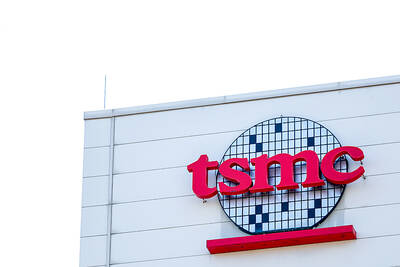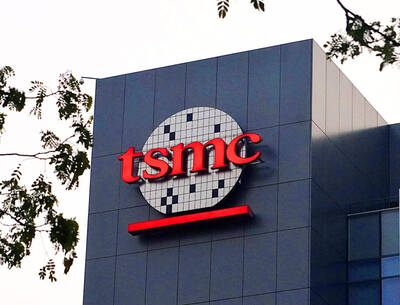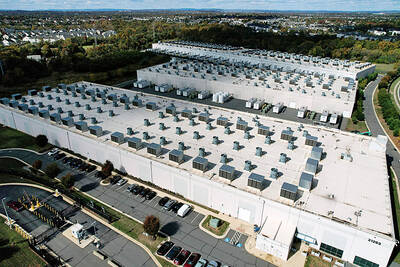Alibaba Group Holding Ltd (阿里巴巴) is in talks to make a major investment in Indonesia’s PT Tokopedia, people familiar with the matter said, potentially scoring a second deal to accelerate its expansion into Southeast Asia’s largest economy.
The Chinese company is in negotiations to lead a funding round in Indonesia’s largest online marketplace of up to US$500 million, one of the people said, asking not to be identified because the deal is private.
Alibaba, which already controls Lazada Group SA, would be joining existing backers Softbank Group Corp and Sequoia Capital if the financing goes through.
An alliance with Alibaba would likely preclude a deal with JD.com Inc, which was also in talks to invest hundreds of millions of dollars in Tokopedia, a person familiar with the matter told Bloomberg in May.
Representatives for Alibaba and JD declined to comment. Tokopedia was not immediately available for comment.
China’s largest tech firms such as Tencent Holdings Ltd are accelerating their investments into Southeast Asia, the first step in concerted efforts to expand beyond their increasingly saturated home shores.
Alibaba has been the most aggressive of its peers, setting up not just e-commerce operations, but also digital payments networks in anticipation of Amazon.com Inc’s eventual debut.
Indonesia as an e-commerce market is expected to climb to US$65 billion by 2020 from just US$8 billion now, according to a report by Macquarie Research.
Tokopedia was cofounded by William Tanuwijaya, the son of a factory worker, in 2009.
The business model is similar to that of Alibaba’s Taobao emporium, matching customers with merchants instead of selling products from its own shelves.
It raised a then-record US$100 million funding round from Softbank and Sequoia Capital in 2014.

INNOCENT? The High Prosecutors’ Office opened a case and ordered a search of Lo’s residences, while Intel claimed he was welcomed back to ‘revitalize’ the company The Ministry of Economic Affairs yesterday dismissed Intel Corp’s comment questioning evidence in the case surrounding alleged leaks of trade secrets from Taiwan Semiconductor Manufacturing Co (TSMC, 台積電), saying that all allegations must be determined by judicial authorities rather than by any one party. Relevant evidence should be determined through the prosecutors’ investigation and the court’s verification, and “cannot be concluded based on one side’s claims,” Minister of Economic Affairs Kung Ming-hsin (龔明鑫) told reporters before the ministry’s weekly business meeting. As the case involves national security and core technologies, the High Prosecutors’ Office has launched an investigation, and the government will

ALLEGATION: When he retired from TSMC in Juiy, former executive vice president Lo Wei-jen did not reveal plans to join competitor Intel, TSMC said Taiwan Semiconductor Manufacturing Co (TSMC, 台積電) yesterday said it had filed a lawsuit against former executive vice president Lo Wei-jen (羅唯仁) claiming he contravened the terms of his employment, amid suspicion that Lo stole TSMC’s trade secrets and leaked them to its US competitor, Intel Corp. In a statement, TSMC said it had filed a suit against Lo at the Intellectual Property and Commercial Court, citing contraventions of the Trade Secrets Act (營業秘密法), the terms of his employment, and confidentiality and noncompete agreements he had signed. The company said it hired Lo as vice president in 2004, and he was

SPRAWLING COVERAGE: Amazon balances ownership with flexibility, leveraging third-party options if they have additional capacity or reach, a spokesperson said Amazon.com Inc’s data center operation is much larger than commonly understood, totaling more than 900 facilities in more than 50 countries, documents reviewed by Bloomberg and investigative Web site SourceMaterial showed. Amazon Web Services (AWS) is best known for sprawling data center hubs in Virginia and Oregon, but those enormous complexes, which the company owns or operates through long-term leases, do not account for its full footprint. The cloud unit also stashes server racks in hundreds of so-called colocation facilities, renting space that as of last year provided about one-fifth of the computing power at Amazon’s disposal, the documents showed. Called “colos”

INTERGRATION: Jensen Huang said that every Nvidia department and function of the company should be using AI, after reportedly saying staff were ‘insane’ not to Nvidia Corp is in a “unique” position in the market, despite facing intensifying competition, chief executive officer Jensen Huang (黃仁勳) said during a brief visit to Taiwan yesterday amid a potentially growing challenge from Google for the artificial intelligence (AI) chip market. Huang told reporters that the AI market is “extremely large” and that while there is a lot of competition, Nvidia’s “condition is very strong and our position is very unique.” Huang, who arrived in Taipei on Thursday, was responding to questions about the possible threat posed by Google. According to a report in The Information on Tuesday, Meta has been in